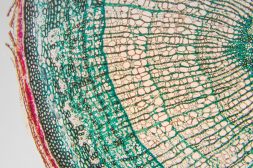Bug
1. A bugbear; anything which terrifies. Sir, spare your threats: The bug which you would fright me with i seek. (Shak)
2. (Science: zoology) a general name applied to various insects belonging to the Hemiptera; as, the squash bug; the chinch bug, etc.
3. (Science: zoology) An insect of the genus Cimex, especially the bedbug (c. Lectularius). See bedbug.
4. (Science: zoology) One of various species of Coleoptera; as, the ladybug; potato bug, etc.; loosely, any beetle.
5. (Science: zoology) One of certain kinds of Crustacea; as, the sow bug; pill bug; bait bug; salve bug, etc.
According to present popular usage in England, and among housekeepers in America, bug, when not joined with some qualifying word, is used specifically for bedbug. As a general term it is used very loosely in America, and was formerly used still more loosely in England. God’s rare workmanship in the ant, the poorest bug that creeps. . This bug with gilded wings. . Bait bug. See bait. Bug word, swaggering or threatening language.
Origin: oe. Bugge, fr. W. Bwg, bwgan, hobgoblin, scarecrow, bugbear. Cf. Bogey, Boggle.
Dictionary > Bug
You will also like...

A Balanced Vitamin Diet – Vitamins A – K
A balanced diet is essential to a healthy organism. Insufficiency or too much of a particular element or compound, such ..

Chromosome Mutations
Mutations can also influence the phenotype of an organism. This tutorial looks at the effects of chromosomal mutations, ..

Plant Tissues
Plant organs are comprised of tissues working together for a common function. The different types of plant tissues are m..

Types and Causes of Brain Damage
This tutorial describes the different types and causes of brain damage. Find out how genetics, physical injury, lack of ..

Genetics – Lesson Outline & Worksheets
Topics Modules Quizzes/Worksheets Description Introduction to Genetics Genetics – Definition: Heredity and ..

Adaptation Tutorial
Adaptation, in biology and ecology, refers to the process or trait through which organisms or the populations in a habit..
